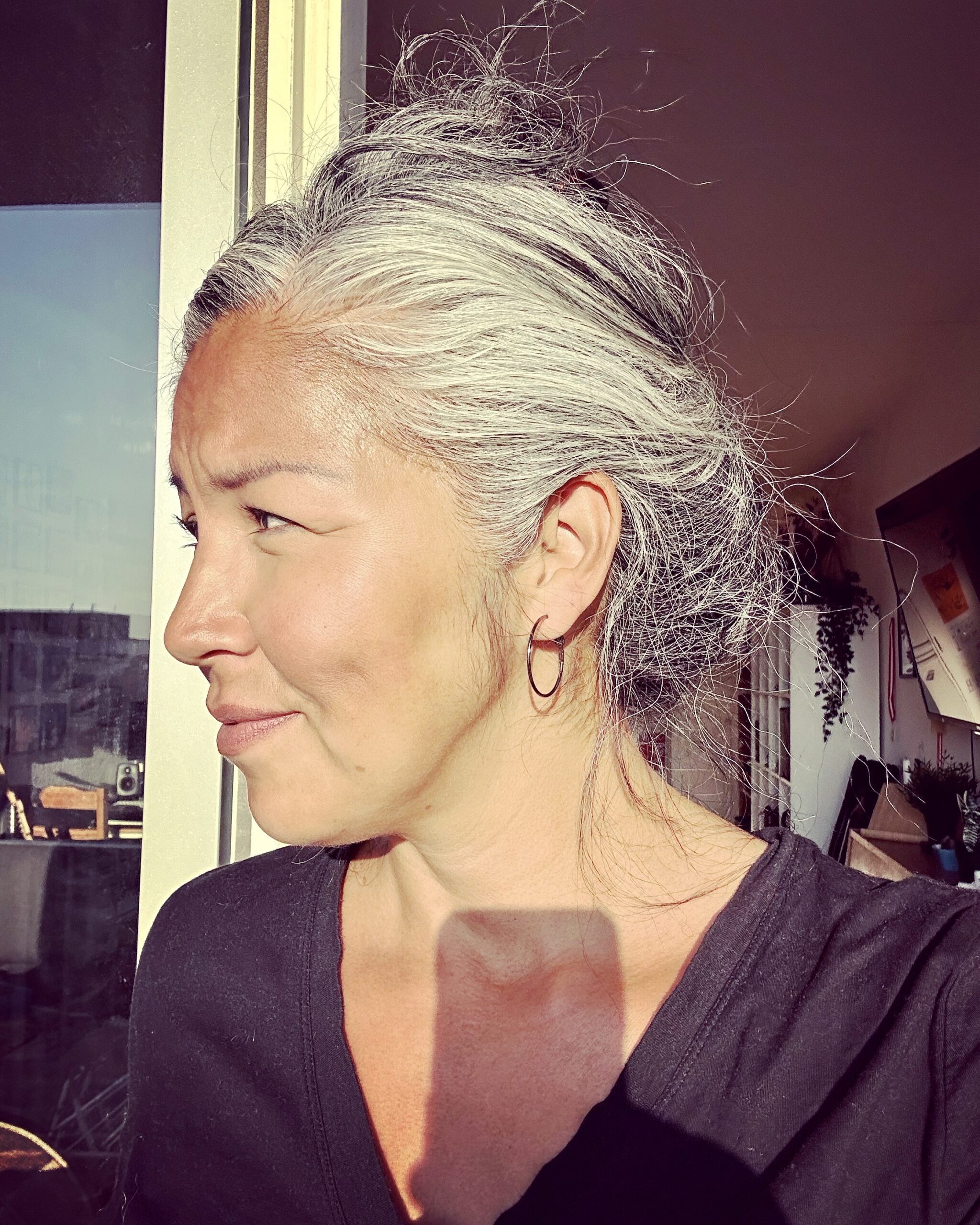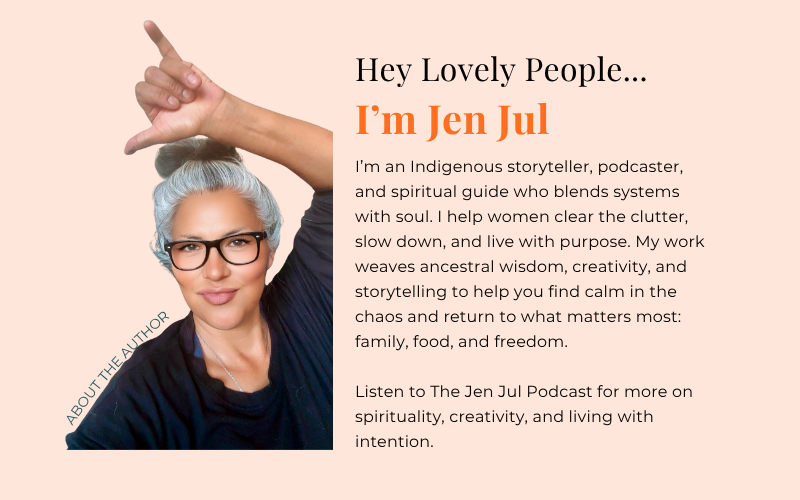
Never Quite Enough: Creating My Own Way in a Country That Doesn’t See Me
November 3, 2025
There’s a line I read recently that hit close to home:
“Some days it feels as if I’m not Native enough for my own people because I use the tools we have been given, and never Western enough for the system that was built to destroy us.” ~Maija Katak Lukin
That sentence held me still for a while. Because I know that feeling too well.
I’ve been living in Denmark for years. Applying. Hoping. Reworking my resume for the five hundredth time. Polishing cover letters like a mirror.
And still…..nothing.
I’m an Indigenous woman from rural Alaska. I grew up surrounded by like-minded people and cultural responsibility. By people who knew that survival wasn’t an individual task, it was community work. I learned early that everyone’s effort mattered.
But here, in a country, like Denmark that prides itself on equality, I’ve never felt more invisible.
Learning Before the Classroom
My education started long before a classroom.
I learned by watching my papa on the river, my aunties cutting fish, my elders discussing what needed to be done next. I learned patience from the land and math from counting our dogs. I learned leadership from listening.
That’s real education. The kind that shapes your instincts and values before you can name them.
I learned what real responsibility was by hauling water because we didn’t have running water. By tending the smokehouse when the salmon was drying. By reading river currents and reading people. By listening to elders with respect. By putting away moose, fish, and berries before the season changed.
I learned how to remember how things were done in the old ways. How if you needed help, you had family, cousins, uncles, and aunties who showed up without being asked.
I was educated by the people, the land, and the culture that raised me. That kind of education doesn’t fit neatly into a degree or a resume.
Doing Everything Right
So, I did what I was told. I left home. I got the degrees. I earned the credentials. I built a career.
I collected titles, cars, the house, and the debt to match. I built the kind of life that looks like success from the outside.
And for a while, it worked. I climbed. I led teams. I managed budgets. I held positions that should have secured my worth. I even built systems that helped others do better work.
But when I moved abroad, all of that vanished.
Here in Denmark, my experience doesn’t “translate.” My leadership in Indigenous organizations is “impressive,” but “not quite aligned.” My professional gaps caused by life, motherhood, and reinvention are “a concern.”
So I kept trying harder.
I rebranded myself. I learned new tools. I rewrote my story in ways I thought they would understand. I played the game of looking “enough.”
And still, no one saw me.
The Weight of Proving Yourself
I’ve carried that weight for years.
Trying to prove I belong in a system that was never designed for people like me. Trying to sound fluent in a language of credentials while my lived experience sat quietly in the corner, unacknowledged.
I chased degrees because I believed that’s what success looked like. I played the role because I thought belonging came with a title.
But all I felt was tired.
“It’s exhausting to be never quite enough.” ~Maija Katak Lukin
Its exhausting to do everything asked of you and still come up short. Exhausting to be measured by checkboxes that don’t include your kind of intelligence. Exhausting to know you have something to give, but no door that will open to receive it.
The Pivot Inward
So I stopped waiting.
After years of looking outward for validation, I turned inward for direction.
That’s where the pivot began, inside me.
I decided to create a life that honors both my roots and my reality. A life that doesn’t need permission. I’m no longer chasing someone else’s definition of success.
Now, I’m building my own path as an Indigenous woman who walks between worlds. The one who blends tradition with technology, spirituality with systems, policy with prayer.
I taught women to use technology with confidence and intuition. As someone who is guided by spirit, I see AI as a tool for liberation, not as replacement for it. My work is coming full circle, back to healing, energy work, and helping others find clarity in both the seen and unseen.
Because our people deserve both healing and progress. The historical trauma we carry still lives in our bodies, our families, and our stories, but so does our capacity to heal, grow and love.
What It Feels Like to Be Invisible
Living in Denmark, I’ve learned that invisibility doesn’t always look like exclusion. Sometimes it looks like politeness. Like being passed over quietly over and over.
They celebrate equality, but rarely inclusion. Diversity is a checkbox, not a lived practice.
I’ve applied for jobs in Alaska and Denmark, both places that shaped me and neither one sees me clearly. I exist in-between. Too foreign to fit in here. Too far away to belong back home.
But that space between worlds is also where creation happens. It’s where new ways of being are born. That’s where I live.
Reclaiming My Worth
I don’t measure success by who hires me anymore.
I measure it by who I help, how I contribute and how people start to see themselves through working with me. By how aligned I feel. By how I show up.
I’m proud to be Native, a slightly woo woo woman with one foot in the modern world and one foot grounded in the spiritual world. I can run a business, build an AI workflow, and still honor the spirits of the land that raised me.
That’s not a contradiction.
That’s evolution.
To Everyone Who’s Felt Unseen
If you’ve done everything right and still can’t find your place, you are not the problem.
You’re just playing by rules that were never written for you.
You don’t need another degree to validate your wisdom. You don’t need another job title to prove your worth. You just need to start building what only you can build.
Because the system may never see us, but we can still see each other.
And we can create our own paths anyway.
Closing Thought
I used to think success was something to earn. Now I know it’s something that we can define on our own terms.
I may not have the perfect resume. I may not fit the mold. But I’ve built a life that blends my culture, my spirituality, and technology. I’ve found a way to thrive where the system said I wouldn’t.
And it’s my hope that my experiences won’t be my children’s. That the system will bend for all of our kids who walk in both worlds. That they’ll be seen, valued, and celebrated for all of who they are and that their education, wherever it comes from, will be recognized as enough.
That’s what I’m building toward. A world where our children can walk freely in both worlds without having to prove their worth, rooted in who they are and can stand tall in every space without shrinking their story to fit in.
That’s enough.

Want more conversations about identity, belonging, and building differently? Listen to the Jen Jul Podcast